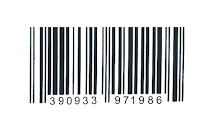Trechos de dois relatos de escritores sobre a vida durante pandemia mundial
***
Roma durante o
lockdown do coronavírus, por Silvia Ranfagni
I’m living in a sci-fi movie. In fact, you are
too. We’re just further along in the plot than you are. A man buys food in a
market in some little-known spot in China and Rome becomes a ghost town. It’s a
strange movie and the popcorn tastes of hand sanitizer. This is Italy. Once it
meant “pasta,” now it means “coronavirus.”
(...) Eternal Rome basks in her glory. The
Colosseum dozes, a newborn cradled by seven gentle hills and lulled by the
music of a past that sings ever louder today. The birdsong is deafening.
Sparrows mainly. Or Eurasian hoopoe. Sounds you never heard. But they have been
here since Romulus.
(...) The skies over Rome today are as empty and
silent as when this city was born. The streets are like a moving picture of
life in the 1800s, cars as rare as carriages. I’m among the lucky ones. I have
yet to contract anything. Recession pokes its maw out, like a stray dog. I want
nothing to do with it. What I do want to do is tell you about a marvelous
poem by Mariangela Gualtieri that went viral here in just a few hours. As the
poem suggests, major events provoke major changes. I will try to translate the
opening lines into English:
“The Ninth of March, Two Thousand and Twenty”
This is what I want to tell you:we had to stop. We knew it.
We all felt that our living was much too furious.
Inside things. Outside ourselves.
Shake each single hour—make it bloom
*
Nove
marzo duemilaventi
Questo
ti voglio dire
ci
dovevamo fermare.
Lo
sapevamo. Lo sentivamo tutti
ch’era
troppo furioso
il
nostro fare. Stare dentro le cose.
Tutti
fuori di noi.
Agitare
ogni ora – farla fruttare.
***
Geoff Dyer, a vida
durante o coronavírus, nos EUA
(...) although we’re only at the beginning of the
coronavirus outbreak, I’m close to the end of my tether. Physical effects lie
in the future, but the psychic toll is already huge—and wide-ranging.
(...) We’ve got just one little bottle of hand
sanitizer, which, in another potential contradiction of Camus’s claim, I’ve
made clear that I deserve more than my wife because, frankly, I paid for it.
“Strictly speaking, it’s not ours,” I pointed out. “It’s mine.” The soap in our
apartment is still communal, though, so we’re always jostling at the sink,
bleaching our hands like the Macbeths. And what a minefield of anxiety the
simple act of washing has become. Wash your hands every time you come in the
house, they say. But, having got in and washed your hands, you then touch stuff
you had with you in the viral swamp of the outdoors. And although we turned on
the tap with a knuckle-nudge, those same knuckles were used to touch the keypad
on our way into the apartment complex. Can flawed washing become a form of
spreading? And how about the keys used to unlock our door? Should we be washing
them as well? Once you become conscious of the tactile chain of potential
infection, the ground rapidly gives way beneath your feet. We’ve now got a
routine, have established a sort of cordon sanitaire, but how are we going to
keep this up? Maybe we started too soon, especially since my hands are already
rashy from the unprecedented orgy of scrubbing, soaping, and sanitizing. In
spite of evidence of panic buying, it seemed that, in some ways, we were more
freaked out by the bug than were other people here. Had they unconsciously
absorbed the lunatic message of the nation’s leader, that the virus will one
day magically go away? Or was it part of that uplifting Californian mind-set
that says one must never have—let alone express—negative feelings about
anything?

Nenhum comentário:
Postar um comentário